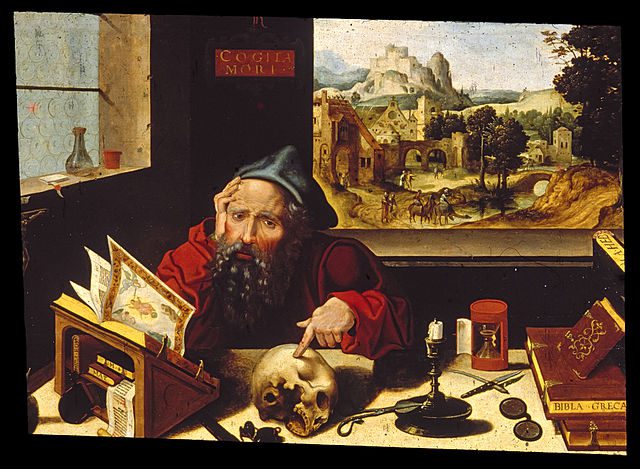Michelle Ponder
Philadelphia, Pennsylvania, United States

Painting via Wikimedia
Freshly-coated med students across the world both revel and rot in the newfound responsibilities bestowed upon them. Suddenly, they become “the smart one” (especially if they are the first doctor in the family), worthy of giving sacred medical advice and being the first to know about Great Aunt Susan’s toe fungus. It is a paradox with which I have become all-too familiar: doctors must commit themselves to a decade (or more!) of medical training, yet are expected to solve all of their family’s medical problems after the first day of school. And to us medical students? It is our best-kept secret that we actually know almost nothing. So, we go on, diagnosing our friends with mental disorders, suggesting exercise strategies to combat osteoporosis, and occasionally actually knowing what causes a disease that someone we know has (it’s bound to happen eventually).
We sit behind our desks for ten-plus hours a day, slowly becoming chemically reliant on coffee, learning about the little “hats” on top of the kidneys, the tails that make sperm move, and the cells that bump around to form babies or sometimes cancer. The truth is that these things form the building blocks of medicine, but they won’t lead to any real diagnoses on their own. So, although we may dream at night of performing surgeries and delivering babies, we awake to be confronted with more complex diagrams and graphs than our worst nightmares could have ever created.
And then there was the time when I actually felt semi-qualified to maybe, eventually call myself a doctor. While speaking to my grandma at a holiday party, she began to lament her sudden lack of ability to put on her bra. While most grandchildren would quickly look for an excuse to exit this particular type of conversation, I instead used my limited, one-semester-of-medical-school knowledge to question if she might have potential rotator cuff injury. Just a few weeks later, the results were in—I was right! And my grandmother started to get better with therapy.
Though we med students may know little about real medical problems, remember that we are on a long journey to our destinies. When we speak to you in the clinic, if you feel like accidentally calling us “doctor,” we won’t correct you. If we begin to explain your disease (even if you already know everything about it), nod and smile and correct us kindly if necessary. Remember that when we make mistakes, the real doctors are here to swoop in and fix it. And when the time comes that we actually piece together the correct medical diagnosis, do not laugh if we cannot explain it perfectly yet or if it took us just a little too long to come to the right conclusion. Because, while our friends are off being bankers and engineers and FBI agents and business people, we are still sitting at our desks, taking notes, and dreaming of growing up to be doctors.
MICHELLE PONDER is a second year medical student at Sidney Kimmel Medical College at Thomas Jefferson University (Class of 2018) from Annapolis, MD. Before attending medical school, Michelle attended Washington & Lee University and earned degrees in Music (Vocal Performance) and Biology. She is currently Legislative President of SKMC Student Council and sings with The Arrythmias, the female a capella group on campus. As she finishes medical school and becomes a doctor, she hope to continue her interest in the arts through writing and singing about her experiences on the wards.
Highlighted in Frontispiece Volume 8, Special Issue – Spring 2016

Leave a Reply